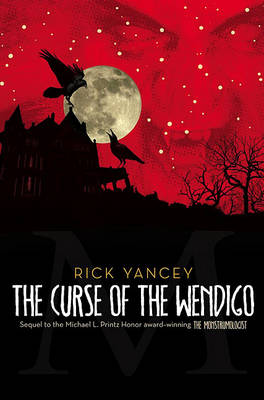Reviewed by e_rodz_leb on
The Curse of the Wendigo starts very soon after the end of The Monstrumologist with brave Will Henry as our narrator and protagonist.
The book can be divided in two parts: first, the expedition to the Canadian forest in search for Dr. John Chandler, and second, the trip to New York City for the monstrumologist’s annual convention. Both parts have their up and downs and we get introduced to many new characters and a new and perfectly horrid “monster”. We learn in this book about Dr. Warthrop’s ex-fiancé and one of the reasons why he behaves the way he does (coupled with a very un-loving childhood). We also meet many of Warthrop’s colleagues in the search for the “Wendigo”.
One of the most fascinating things about this series is not only its mesmerizing story line and plot, but the brilliant writing by Mr. Yancey. He makes images and pictures come to life just by stringing words together. He makes a forest comes to life and be another living character, he describes monsters and the monstrosities they commit in a way that had me cringing in disgust and despair. Take the following paragraph for example:
“There is no future in it, Will Henry,” he said pensively. “The future belongs to science. The fate of our species will be determined by the likes of Edison and Tesla, not Wordsworth or Whitman. The poets will lie upon the shores of Babylon and weep, poisoned by the fruit that grows from the ground where the Muses’ corpses rot. The poets’ voices will be drowned out by the gears of progress. I foresee the day when all sentiment is reduced to a chemical equation in our brains—hope, faith, even love—their exact locations pinned down and mapped out, so we may point to it and say, ‘Here, in this region of our cerebral cortex, lies the soul.’”
Needless to say, I cannot wait to read The Isle of Blood, the third installment in the series. This series is not for the faint of heart, but it is so, so good. If you like horror movies (which I do not) give The Monstrumologist a try.
About the cover: The cover is a lot less scary than The Monstrumologist’s was, and still there is a scary face in the background, kind of sneaking on you. We can also see the forest and the red symbolizing death and blood.
Reading updates
- Started reading
- 12 April, 2012: Finished reading
- 12 April, 2012: Reviewed
